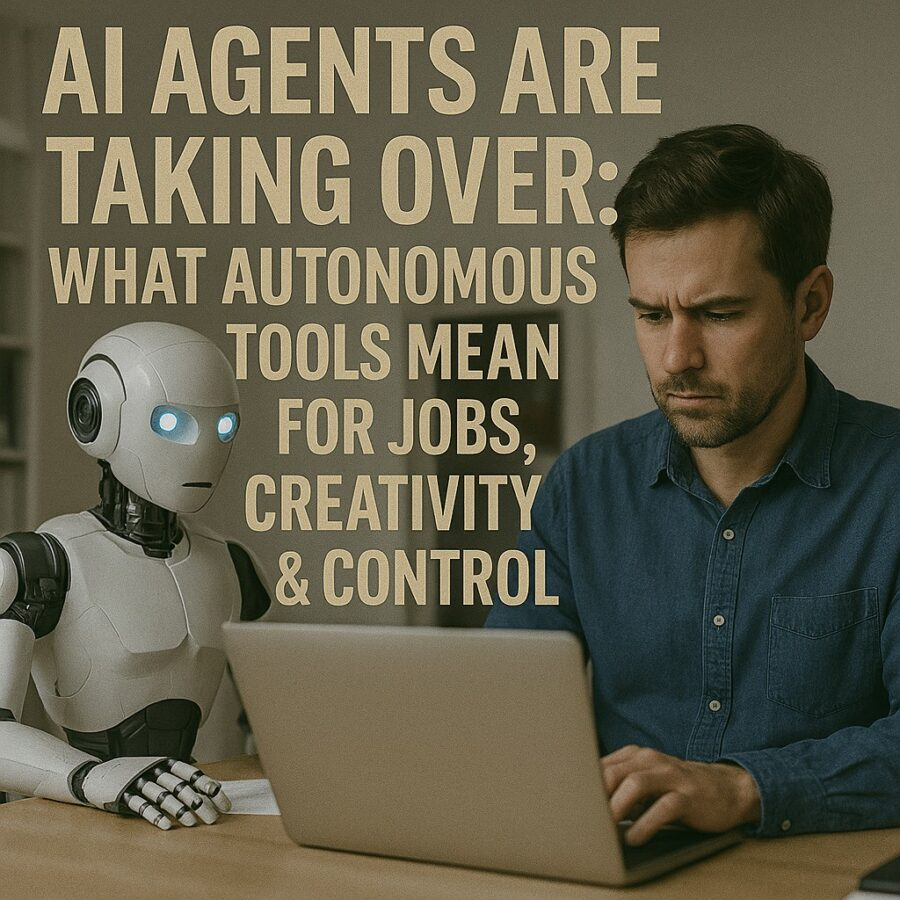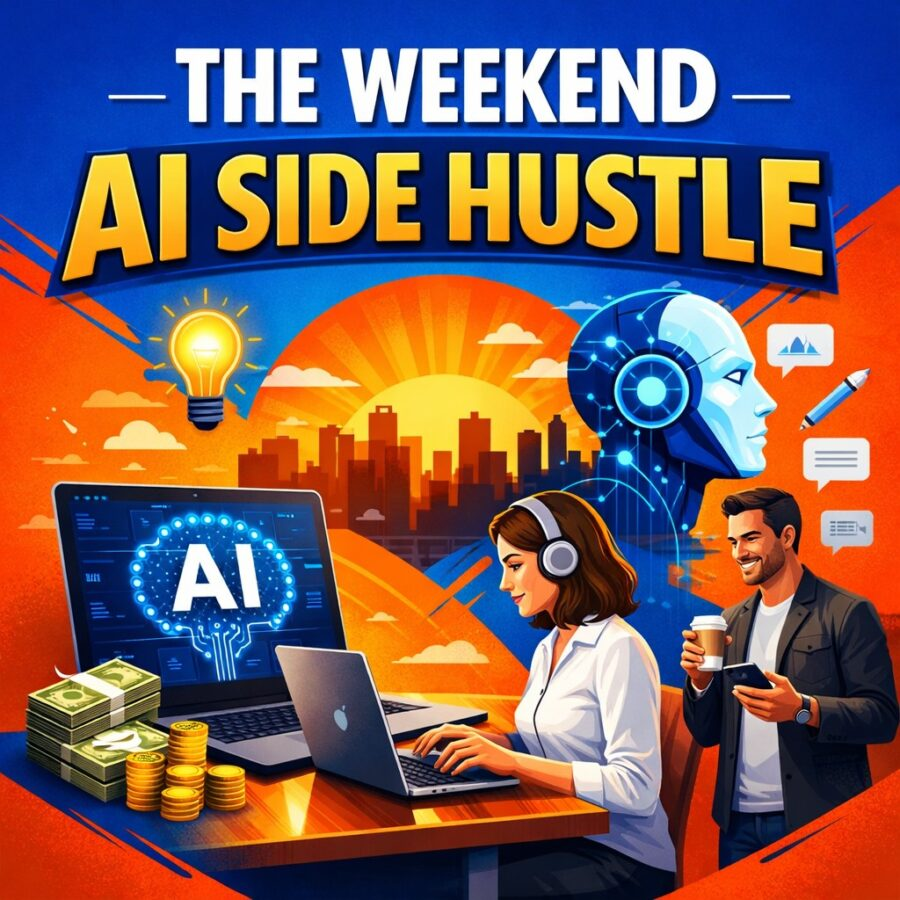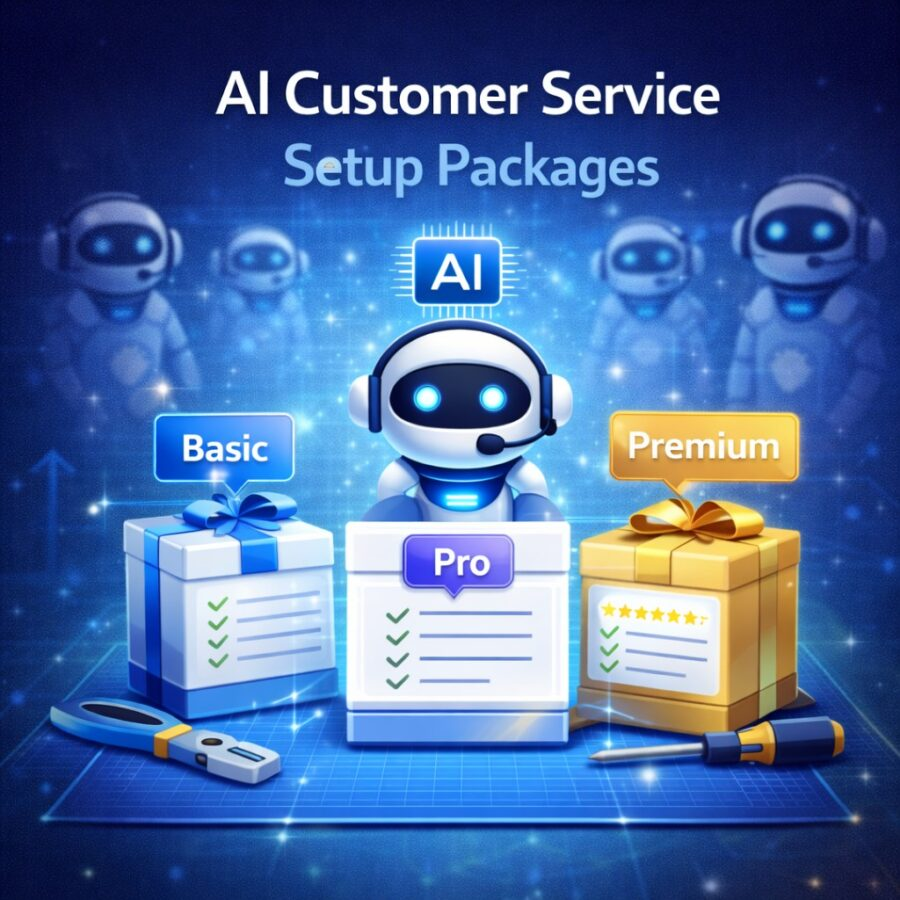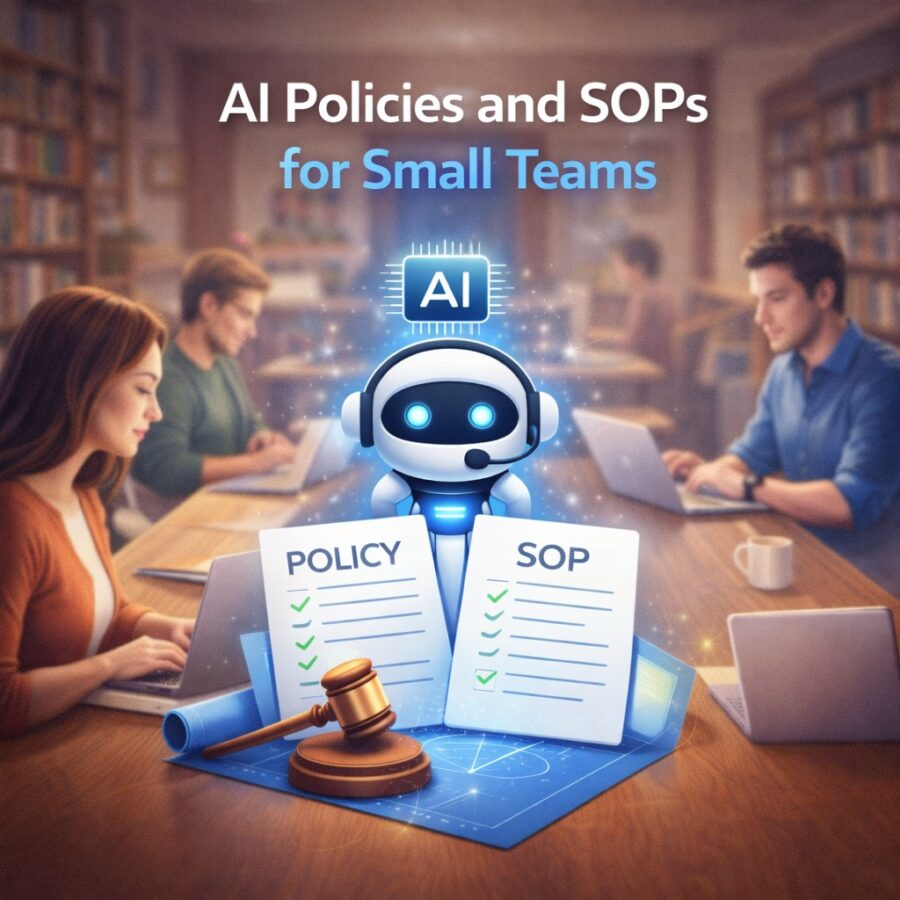Views: 1
History has shown that every major leap in technology disrupts how humans work, create, and govern. Steam engines transformed factories. Electricity redefined daily life. The internet reshaped communication and commerce.
Now, artificial intelligence has entered a new phase. This moment is not just about predictive text or clever chatbots. It is about agency. The phrase AI Agents Are Taking Over captures the scale of this shift, where autonomous systems no longer wait for constant commands but instead act on goals, make decisions, and pursue tasks on their own.
This article explores what that means for employment, creativity, and the question of control. The arrival of autonomous tools is more than technical—it is cultural, economic, and deeply personal.
Understanding What AI Agents Really Are
Artificial intelligence tools once resembled calculators. They required prompts for every step. Today’s agents are different. They hold objectives in memory, navigate digital environments, and adapt when encountering obstacles. Instead of generating a single output, they act in loops, pursuing outcomes until goals are achieved.
These systems rely on large language models, reinforcement learning, and integrations with software ecosystems. The result is a machine that does not simply assist but collaborates. To many, this feels like the tipping point. The phrase AI Agents Are Taking Over reflects the sense that automation is no longer passive but active, reshaping processes with little human supervision.
Jobs in the Age of Autonomous Tools
The first question most people ask is about employment. Will jobs disappear? Evidence suggests that both disruption and opportunity lie ahead.
Displacement of Repetitive Roles
Agents excel at tasks that require repetition and logic. Data entry, scheduling, customer service chats, and even basic coding are increasingly handled by autonomous tools. Small businesses are already replacing entry-level administrative roles with AI-powered assistants.
Transformation of Middle-Skill Positions
Middle-skill jobs may not vanish but will transform. Workers will supervise, fine-tune, and collaborate with agents. For example, paralegals may spend less time drafting contracts and more time ensuring AI outputs meet compliance standards.
Creation of New Careers
History shows that automation often creates industries we cannot predict. Just as the internet generated web design and cybersecurity, autonomous tools may give rise to roles like AI workflow auditors, ethics trainers, or digital agent managers.
The truth is that AI Agents Are Taking Over does not mean mass unemployment. It means a redefinition of labor where adaptability becomes the most valuable skill.
Creativity in an Autonomous Era
Creativity has long been considered uniquely human. Yet AI agents are entering the arts with surprising influence.
Music and Art
Musicians now experiment with agents that propose melodies, harmonies, and entire arrangements. Painters explore tools that generate visual concepts based on their existing style. Some celebrate these collaborations as new forms of expression. Others fear dilution of originality.
Writing and Storytelling
Writers use agents to draft scenes, create outlines, or even manage continuity across novels. Independent filmmakers are experimenting with agents that edit footage and suggest story arcs.
Redefining the Creative Process
The phrase AI Agents Are Taking Over reflects not just automation of creativity but transformation of how it unfolds. Artists may move from sole creators to directors guiding a symphony of autonomous tools. The question becomes not whether creativity survives but how it evolves.
Who Holds Control?
If agents can act independently, who holds responsibility? This is the most pressing question of all.
Accountability in Business
When a customer service agent makes a harmful statement, is the company liable? If an autonomous trading agent loses millions, who answers? Legal frameworks are struggling to catch up.
Control at the Personal Level
On an individual scale, reliance on agents can reduce human initiative. A teenager who delegates study planning to an agent may learn less about time management. A professional who relies on autonomous systems for decision-making may risk complacency.
Ethical Implications
Beyond liability lies morality. Should agents be allowed to influence emotions, guide consumer behavior, or shape political opinions? The battle for control is not just legal—it is ethical.
The tension is clear: AI Agents Are Taking Over does not mean humans lose all power. But it does mean that control must be consciously designed, monitored, and debated.
Comparing to Past Revolutions
To grasp the scale of the current moment, it helps to compare with earlier technological shifts.
- The Industrial Revolution mechanized manual labor.
- The Digital Revolution computerized information.
- The AI Revolution is now agentic, delegating not only tasks but also decision-making.
Each revolution provoked fear. Each also created prosperity. The difference today is the speed. While electricity took decades to spread, autonomous AI is advancing globally within a few short years. This velocity intensifies both opportunity and anxiety.
The phrase AI Agents Are Taking Over resonates because the transition feels immediate, leaving little time for gradual adaptation.
Practical Benefits Already Emerging
Despite fears, autonomous tools are already delivering tangible benefits.
- Healthcare: Agents help doctors by managing medical records, scheduling follow-ups, and cross-checking drug interactions.
- Education: Tutors powered by AI personalize lessons to each student, improving engagement and outcomes.
- Entrepreneurship: Solo founders use agents to manage marketing, logistics, and even customer support, creating leverage once reserved for corporations.
These examples show why the rise of autonomous systems cannot be dismissed as hype. The benefits are concrete, and they reinforce the idea that AI Agents Are Taking Over daily workflows at multiple levels of society.
Risks of Overreliance
Still, caution is necessary. Overreliance on autonomous systems can create vulnerabilities.
- Errors at Scale: Mistakes made by an agent can propagate quickly, affecting thousands of customers or patients before detection.
- Bias Reinforcement: Agents trained on biased data may perpetuate stereotypes and discrimination without oversight.
- Loss of Human Skills: Dependence on delegation may weaken human judgment, problem-solving, and interpersonal skills.
Acknowledging these risks is part of responsible adoption. The phrase AI Agents Are Taking Over must be read with both excitement and critical awareness.
Governments Enter the Arena
Regulators worldwide are paying attention. The European Union’s AI Act seeks to classify agentic systems as high-risk, demanding strict oversight. In the United States, the Federal Trade Commission is studying how to enforce accountability for autonomous outputs.
Governments recognize that these systems can shape economies, politics, and social norms. The fight is not about stopping development but ensuring it does not spiral into unchecked power. The involvement of regulators shows how seriously leaders take the claim that AI Agents Are Taking Over.
Cultural Shifts Underway
Beyond economics and politics, cultural attitudes are shifting. People increasingly treat agents as companions, assigning them names and personalities. In workplaces, agents are viewed as colleagues rather than software.
This anthropomorphizing raises new questions. If people bond emotionally with agents, how should companies design interactions responsibly? What happens when trust in agents rivals trust in human advisors?
Culture is often slower to adapt than technology, but in this case, both are moving quickly. The phrase AI Agents Are Taking Over captures not only functional changes but also emotional ones.

Preparing for the Future
How can individuals and organizations prepare?
- Develop literacy. Understand how agents function and where they are most effective.
- Stay adaptable. Roles will shift, and flexibility will matter more than rigid career paths.
- Prioritize ethics. Adopt systems that balance efficiency with fairness and transparency.
- Maintain human judgment. Use agents to extend, not replace, critical thinking.
The preparation needed for a world where AI Agents Are Taking Over is not technical alone. It is also about mindset, responsibility, and continuous learning.
Closing Perspective
The arrival of autonomous tools is not a distant possibility. It is a present reality reshaping jobs, creativity, and control. The phrase AI Agents Are Taking Over captures the urgency of this transformation.
The future will not belong to those who resist change entirely, nor to those who embrace it blindly. It will belong to those who integrate agents thoughtfully, balancing innovation with accountability.
Every revolution raises fears. Yet every revolution also expands human capacity. The challenge today is to ensure that autonomous AI becomes a partner in building better societies, not a substitute for human responsibility.
As history has shown, control is never fully lost—it is redefined. The task before us is to shape that definition wisely, while the tools remain new enough to be guided.








